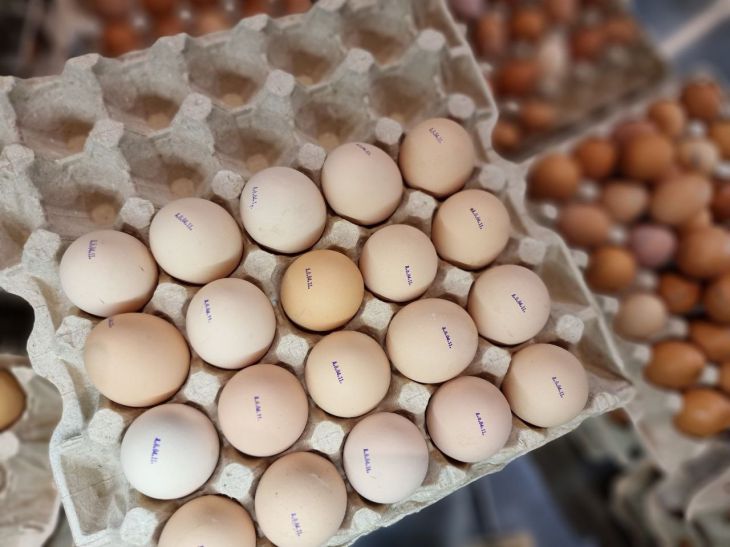To ensure that eggs do not bring harm, but only benefit, you need to know how to choose them correctly and check their freshness.
How to check the freshness of eggs quickly and effectively in the store or at home?
How to check the freshness of eggs in the store
In the store, you can check the freshness of eggs by several signs.
Production date. The packaging has markings that contain information about the production date and expiration date. The expiration date of eggs is thirty (30) days from the date of production.
Shell integrity. Egg shells should not have any cracks, chips, stains or dirt. Damaged eggs may be contaminated with bacteria.

Shape and position of the egg. The egg should be a regular oval shape, without deformations or bulges. If the egg has a raised blunt end, it is not fresh. If the egg easily rolls on the surface, it is also not fresh.
How to check the freshness of eggs at home
At home, you can check the freshness of eggs using the following methods.
Immersion in water. If you put an egg in water, it can behave differently. A fresh egg will lie horizontally on the bottom of the water. A stale egg will rise with the blunt end up or float to the surface.
Assessing the condition of an egg by breaking it onto a plate. When an egg is broken onto a plate, it can be analyzed by its external features.
If the egg is fresh, it will have a convex yolk, and the white will be viscous and tightly cover the yolk.
In contrast, a stale egg will have a flat yolk that runs across the plate along with the runny white.
Conclusion
Eggs are an important source of nutrition for our health, so it is important to know how to check their freshness and quality.
To do this, you can use simple and effective methods that will help you avoid buying or eating rotten eggs.








